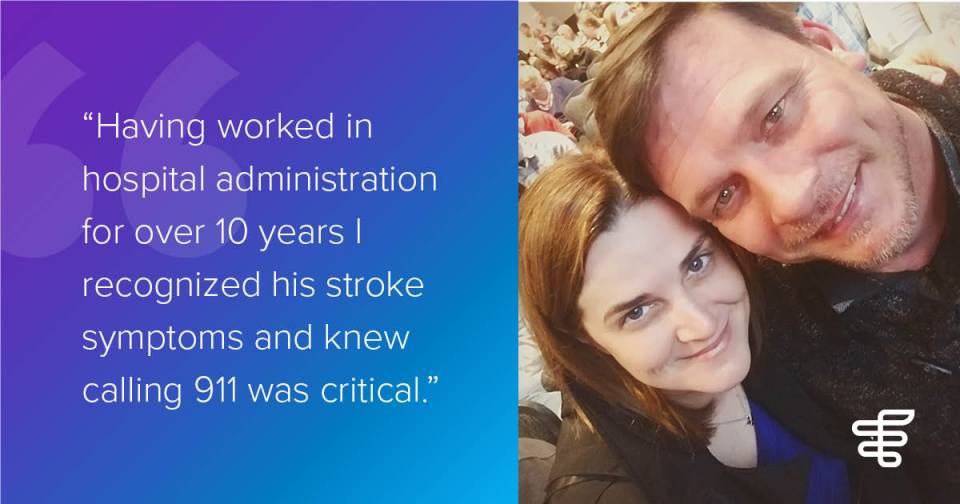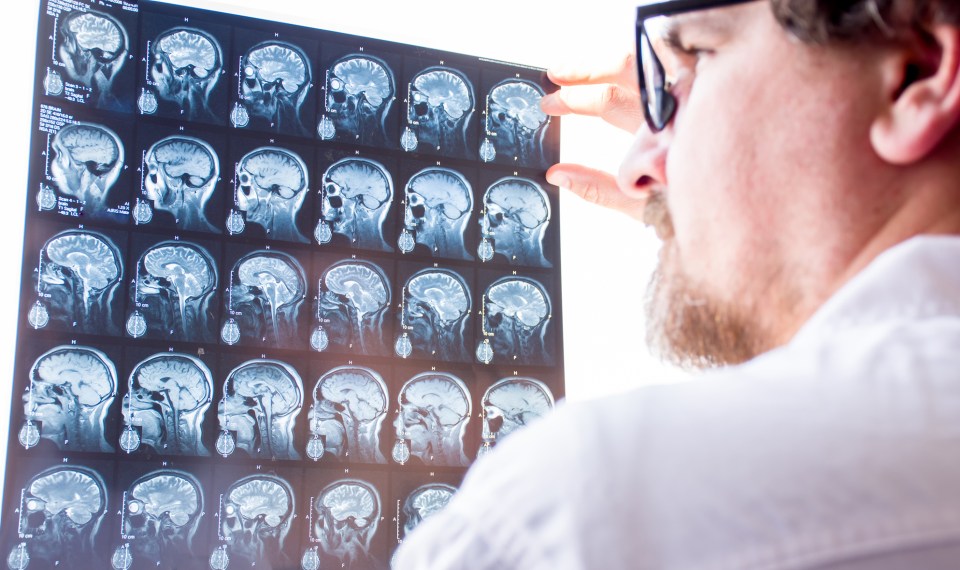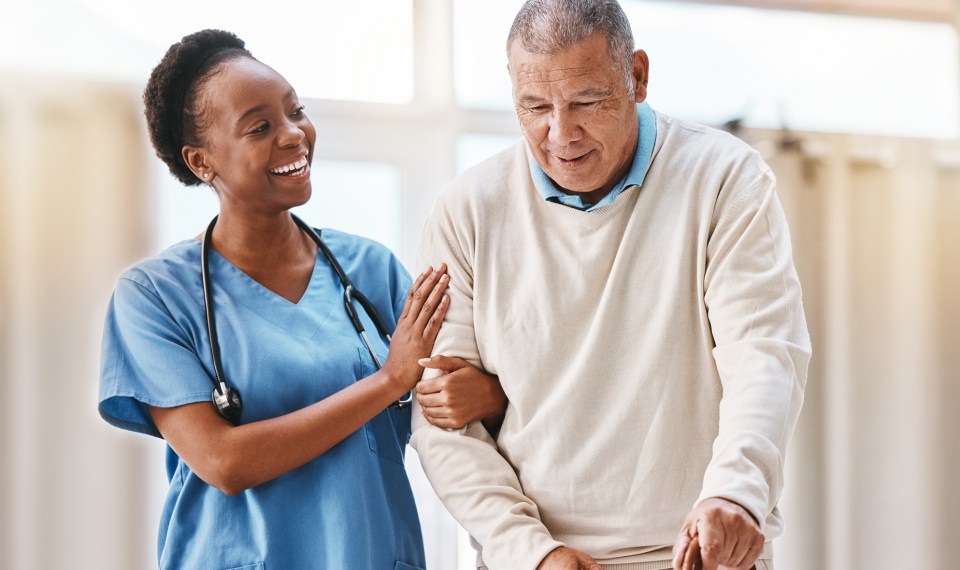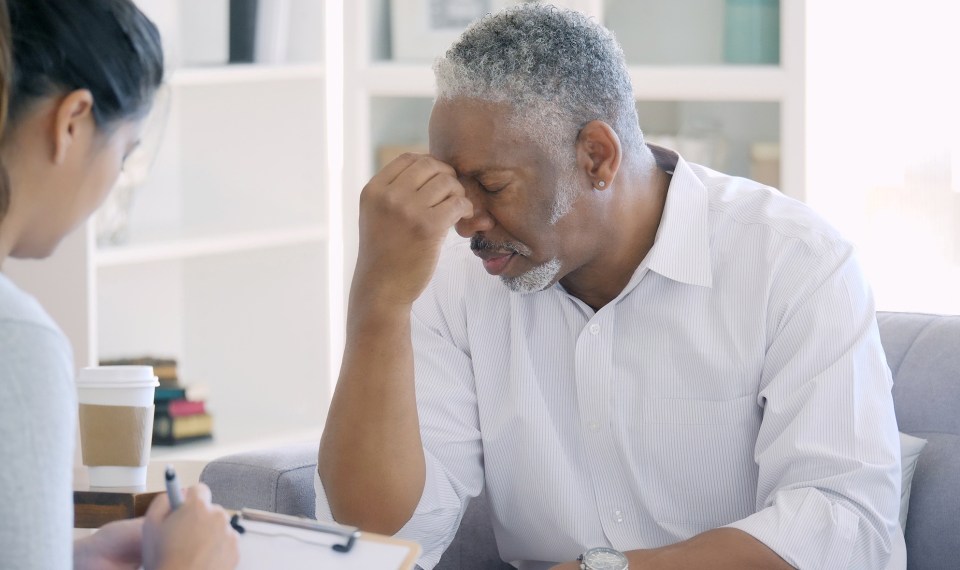It was just after 5 a.m. when my cell phone rang on my nightstand. My husband, Mark, on the other line said “can you come down here?” I shot straight out of bed and asked him what was wrong. He replied, “Just come down here.” He always slept in the basement—our solution to his snoring. I ran downstairs and found him drenched in sweat, with the left side of his face drooping. He said he needed to go to the hospital. His speech was slurred. He couldn’t swallow, and he couldn’t walk.
Having worked in hospital administration for over 10 years I recognized his stroke symptoms and knew calling 911 was critical. We soon learned he had suffered a vertebral artery dissection and stroke. He was flown to the University of Iowa and admitted to the intensive care unit at 42 years old.
Despite the gravity of the situation, it wasn’t until I said the word stroke out loud to his boss that I finally broke down and cried. Before that I had jumped into emergency management mode, and then confusion. He was too young! He didn’t have any risk factors! He wasn’t on a single medication! It just didn’t make sense.
But here we were, in the intensive care unit. All of us—my husband, me, our three kids, our parents and his siblings. My stroke journey was marked by three distinct phases of understanding: what had happened, my role in recovery and our new reality.
What just happened and what does this mean?
One of the most terrifying aspects of stroke is not knowing. Why did this happen? Will it happen again? Will he (we) recover from this? How long will it take? What even was a vertebral artery dissection, and why couldn’t I find anything on Google about it? The first hours and days focused on understanding the current state. The tear in Mark’s artery was “spontaneous.” With no known trauma, the doctors suspected it was caused by cracking his neck. He had significant balance issues and couldn’t walk without being supported.
What limited information I could find said it would probably take a year to get better. Also, there was no intervention to repair the tear. The doctors said we just had to wait for it to heal and hope for the best, but they felt optimistic he would do well given his deficits and the location of the stroke. The phrase “you are very lucky” was said repeatedly. And yet, we didn’t feel lucky.
Caregiver or loved one?
Mark is wicked smart and painfully stubborn and neither of these changed with his stroke. The days, months and years following his stroke were often challenging as we held different ideas about how he should recover. I arranged appointments, kept spreadsheets of medications, binders of medical documents and became increasingly frustrated when Mark made decisions about his health that I didn’t agree with. I lamented to a counselor who said, “It’s pretty hard to be caregiver and spouse.” That clicked for me. I stopped doing for Mark what he could do for himself and accepted that he could make his own decisions—just as he had before when I didn’t agree with him.
Stroke changed us
Change is inevitable when someone suffers a stroke. Our oldest daughter was hit the hardest as she struggled with the loss of the dad she once knew. Mark was terrified of statistics he read about divorce after a stroke. I spent many nights refocusing not only on what we had, but also what we gained. My husband was funnier—he says he was always funny, just less reserved now. Priorities about what we both wanted out of life became clearer. Life was different and that became part of our story.
The stroke journey is not a quick one. It’s challenging not only for the person who experiences a stroke, but everyone in the caring circle. It’s full of frustration and anxiety, but also hope and triumph. When Mark had his follow up CT scan three months after his stroke we learned his artery had healed and a great weight was lifted off our shoulders.
He asked the doctor when he could go skiing again and it was recommended he wait two years. This past winter we cleared that milestone and took a trip to Colorado. He was nervous that his left side didn’t seem to respond the way it had before, but took it slow with our son and had a wonderful time. That first article I read was wrong. Healing continues well past one year, and for that we are thankful.
We are luckier and stronger than we could have imagined. And we are hopeful for the journey that continues on.
Amanda Olderog is the CEO of the University of Iowa Health Network Rehabilitation Hospital, a venture of Encompass Health, which is expecting to start serving patients in June 2020 in Coralville, Iowa.
The content of this site is for informational purposes only and should not be taken as professional medical advice. Always seek the advice of your physician or other qualified healthcare provider with any questions you may have regarding any medical conditions or treatments.



